MercoPress. South Atlantic News Agency
Environment
-
Tuesday, September 9th 2014 - 04:11 UTC
Antarctica sea levels rising faster because of fresh water from melting glaciers, say researchers
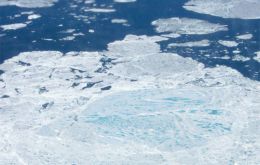
Sea levels around Antarctica are rising faster than anywhere else in the southern ocean. The global average rise in ocean heights in the last 19 years has been 6cms, but the rise in seas around Antarctica is 2cms higher.
-
Tuesday, September 2nd 2014 - 19:53 UTC
New Zealand increases hoki TAAC following successful stock conservation management
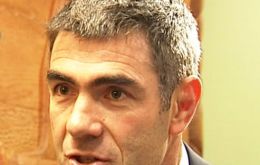
The Deepwater Group says the increase in the total allowable commercial catch (TACC) for hoki shows the benefits of a long term commitment to build biomass in this major New Zealand fishery. An increase in the hoki catch, from 150,000 to 160,000 tons, was announced on at the Seafood Industry Conference in Wellington by the Minister for Primary Industries Nathan Guy.
-
Saturday, August 30th 2014 - 11:49 UTC
Marina pledges to restore Brazil credibility and limit spending below growth rate
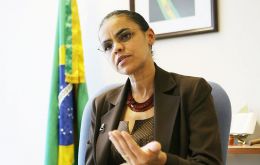
Opposition presidential candidate Marina Silva said that Brazil's recession is very worrying and her government would work to restore the credibility of the country's economic policies to recover investment and growth if elected. The Brazilian economy fell into recession in the first half of the year, a heavy blow for President Dilma Rousseff's already diminishing hopes of winning re-election in October.
-
Friday, August 29th 2014 - 06:49 UTC
New technology could end the debate over pipeline safety

Who could have ever imagined that North America would surpass Saudi Arabia as the world’s largest producer of oil and natural gas liquids? A decade ago, that would have seemed laughable. Yet that’s exactly what has happened; and it’s not just Saudi Arabia that has been left in North America’s dust -- Russia has, too.
-
Tuesday, August 26th 2014 - 07:10 UTC
Ring of fire hits central Peru and the Napa Valley in California

A magnitude 6.9 earthquake struck central Peru late on Sunday, and no immediate reports have surfaced about significant damage or major injuries. The U.S. Geological Survey originally estimated the earthquake to be a magnitude 7 but has since downgraded it, according to The Weather Channel. The impact was also felt in northern Chile.
-
Friday, August 22nd 2014 - 13:07 UTC
Unlikely bedfellows: mines that run on solar or wind power

Mining companies are often seen as dinosaurs when it comes to making changes that will benefit the environment, but that perception may be shifting as some companies turn to renewable energy to cut costs and lighten their carbon footprint.
-
Friday, August 22nd 2014 - 00:01 UTC
An estimated 36.500 tourists and 54 vessels expected this coming Antarctic season
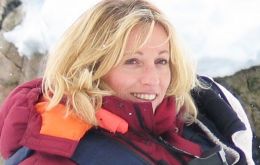
During the upcoming Antarctic season, from November through March, 36,545 tourists are expected to visit, according to estimates compiled by the International Association of Antarctica Tour Operators (IAATO). That’s a slight dip from the 37,405 who visited in 2013-14, which was a 9 percent increase from the previous year.
-
Monday, August 18th 2014 - 07:04 UTC
Scientists create a carbon dioxide absorbing 'polymer sponge' that helps new energy sources

Scientists have created a new sponge-type material that absorbs carbon dioxide, which is believed to play a key role in global warming. The polymer – a large molecule used in plastics – is thought to have the potential to bridge the gap between the use of fossil fuels and new energy sources such as hydrogen, and could be integrated into power plant smokestacks in the future.
-
Friday, August 15th 2014 - 06:40 UTC
Chilean lawmakers approve initiative to ban trawling in territorial waters

The House of Representatives approved this week a draft agreement to ban trawling in Chile. With 55 votes in support, six against and five abstentions, the deputies voted in favor of the Draft Resolution No. 100, which requests the Executive to submit a legislative initiative to amend Article 49 of Act No. 18,892 in order to ban fish catching by trawling.
-
Wednesday, August 13th 2014 - 05:52 UTC
Three Finnish icebreakers for Russia's oil and gas operations in the Arctic
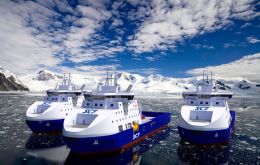
Finland-based Arctech Helsinki Shipyard has been contracted to build three icebreaking stand-by vessels for Russian shipping company Sovcomflot, for a total cost of 380 million dollars.
